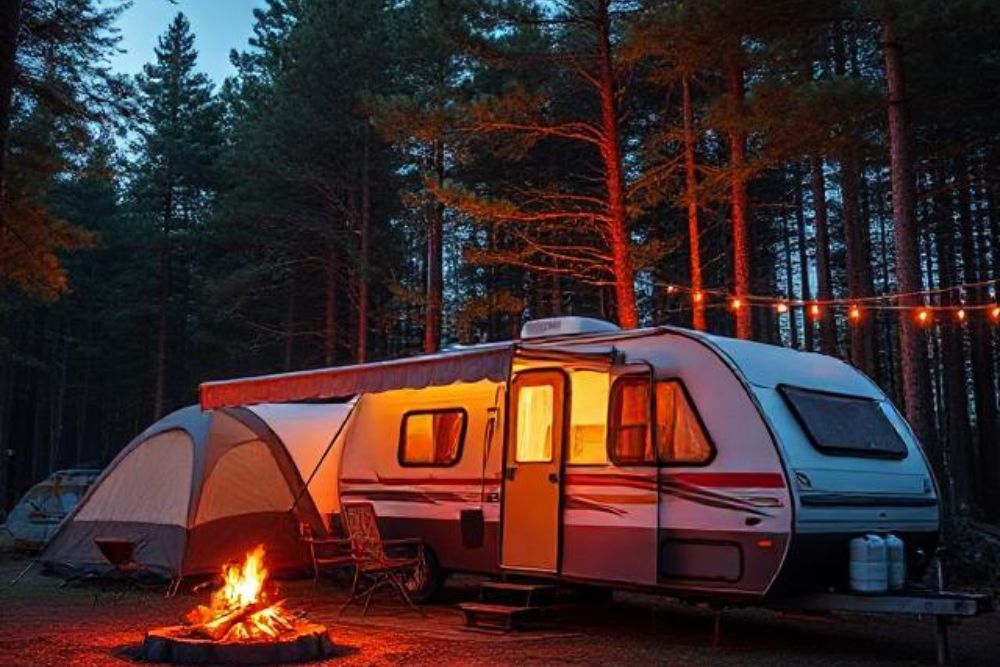Pros and Cons of Camping
Camping, an exciting outdoor pastime, allows people to break away from everyday routines and immerse in nature once again. Camping can be a weekend away or an extended wilderness adventure whose experiences and challenges are unique. While many find it rewarding, some would recoil from its inconveniences.
This article discusses the pros and cons of camping and helps in determining whether camping should be the right thing for you.
|
|
Pros of Camping
- Connection with Nature
Camping provides the opportunity to appreciate the beauty of the natural environment. Surrounded by forests, mountains, rivers, or beaches will bring some sense of peace for a camper, allowing him or her to escape the dynamics of urban life. - Relieves Stress and Enhances Mental Health
Being outside in nature has been known to reduce stress, anxiety, and depression. It is a welcome break from the noise of the day-to-day and a time to clear the head. - Physical Exercise
Hiking, fishing, setting up a camp, and collecting firewood encourages physical movements, thus fitness, cardio health, and overall well-being. - Family and Friends Connection
Camping offers families and friends time away from other activities to spend together. Engaging in various sporting activities outdoors, storytelling, and bonding around campfires foster this connection. - Friendly to The Pocket Book
Camping itself, on the other hand, is definitely less expensive than the conventional holiday. Most of the campsites are pretty inexpensive, and the same gear is reused for more than one trip, making for a more pocket-friendly option for the traveler. - Life Skills
Camping teaches very useful life skills like fire-making, tent pitching, cooking in the great outdoors, and navigation. People gain enhanced self-reliance and preparedness for emergencies. - Adventure and Exploration
For those who seek adventure, camping offers chances to traverse new terrains, find hidden trails, and gain the thrill of being in the wild. - Eco-Friendly Travel Option
Camping leaves a far fewer carbon footprint compared to a commercial hotel. Responsible camping allows people to minimize their environmental impacts and encourages sustainability.
Cons of Camping
- Uncertain Weather
Weather is a big determining factor when it comes to camping. Rain or first extreme hot and cold can easily make an outing unpleasant and sometimes unsafe. - Inability to Enjoy the Modern Comforts
Leaving home means staying away from amenities like air conditioning and comfortable beds, plumbing, and electricity. Some of the campers find the adjustment to a more primitive lifestyle very difficult. - Insects and Wild Animals
Camping involves exposure to insects like mosquitoes, ticks, and flies and encounters with wildlife. Precautions are utmost to avoid bites and unwanted interactions. - Hard to Set-Up and Pack
Packing, transport, tent assembly, and cooking can be physically taxing or be something about which novice campers will find it difficult to complain. - Safety Hazards
Camping includes risks such as getting lost, wild animal threats, food contamination, and fire hazards. It is important that one prepares well and stays aware to ensure safety. - Limited Restroom Facilities
Most campsites have access to just a few restroom facilities, making it quite difficult for proper hygiene. Bathing, using restrooms, or cleanliness may not be as easy as at home. - Poor Sleep
The lack of comfort found when sleeping in a tent or under the stars would not match a bed. Things like untidy ground, noise, temperature changes, and absence of bedding all play a part in one having a poor night’s sleep. - Cost of Equipment
Camping is more or less affordable, yet the investment for a tent, sleeping bags, cooking implements, and outdoor clothing could be unimaginable. Good quality gear will be worth it but entails spending lots of cash.
Conclusion
Camping is an enriching experience that bestows interesting adventure, relaxation, and a much-needed break from modern life. Yet there are also challenges ranging from unpredictable weather to lack of amenities.
Weighing the pros and cons allows one to be in a better position of preparation for a camping trip and whether such would suit his tastes and lifestyle or not. Whether they are on to experience the wilderness or strike a happy compromise in comfort with nature, camping can, indeed, be a multifaceted and gratifying experience for many.

